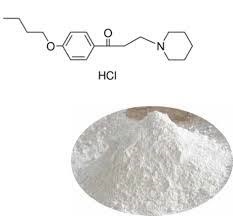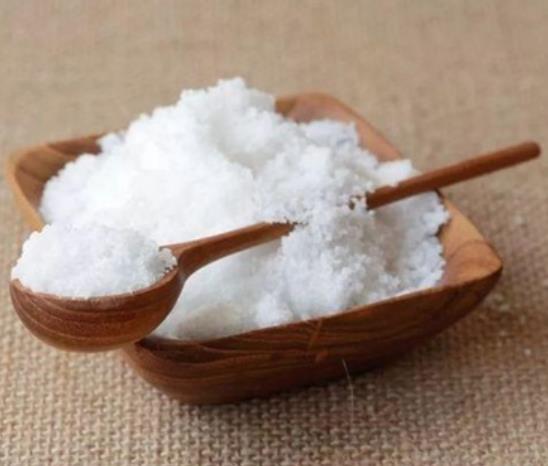The uses and Pharmacokinetics of Dyclonine hydrochloride
Dyclonine hydrochloride is the hydrochloride salt of Dyclonine. Dyclonine belongs to a kind of oral anaesthetic. It is contained in the “Sucrets” as well as some kinds of Cepacol sore throat spray as an active ingredient. Dyclonine takes effect through reversibly binding to the activated sodium channels located on the neuronal membrane. This decreases the permeability of sodium across the neuronal membrane, further increasing the threshold for excitation. Overall, Dyclonine stabilizes the membrane and inhibits depolarization, resulting in the failure of a propagated action potential and further suppressing the subsequent conduction. This causes a transient and reversible anaesthetic effect in a local area of the body.

Uses
- Oral/Throat Analgesia/Anesthesia
- Self-medication for the short-term relief of minor sore throat pain and mouth and gum irritation.a b
- In fixed combination with menthol as self-medication for temporary relief of occasional minor irritation, pain, or soreness of mouth or throat, and for cough associated with a cold or inhaled irritants.100
- Local Anesthesia It has been used as a local anesthetic agent prior to laryngoscopy, bronchoscopy, esophagoscopy, or endotracheal intubation.a However, oral solutions no longer are commercially available in the US.
Warnings/Precautions
Sensitivity Reactions
Allergic Reactions
Use with caution in patients with a known allergy to dyclonine.
Sensitization and allergic reactions are infrequent.a Possible hypersensitivity reactions to anesthetics may manifest as cutaneous lesions with delayed onset, urticaria, swelling, and edema.a
General Precautions
Systemic Effects
Systemic (e.g., CNS, cardiovascular) effects possible with excessive dosage or rapid absorption of dyclonine.
Adverse CNS effects may include excitation and/or depression, nervousness, dizziness, blurred vision, or tremors followed by seizures, unconsciousness, drowsiness, and possibly respiratory arrest.
Pharmacokinetics
Absorption
Following topical application of a 0.5 or 1% solution of dyclonine (both no longer commercially available in the US) to mucous membranes, local anesthesia occurs within 2–10 minutes.a
Duration
Following topical application of a 0.5 or 1% solution of dyclonine, anesthesia persists for approximately 30 minutes.a
Advice to Patients
Advise patients to suck rather than chew or bite the lozenge.
Advise patients to consult a clinician prior to use for a chronic cough secondary to smoking, asthma, or emphysema or a cough accompanied by excessive phlegm.
Advise patients to discontinue the drug and consult a clinician if sore throat symptoms or cough do not improve after 2 days or if sore mouth symptoms do not improve after 7 days.
If irritation, pain, or hypersensitivity occurs, discontinue use and consult a clinician or dentist.
Preparations
Excipients in commercially available drug preparations may have clinically important effects in some individuals; consult specific product labeling for details.
You may like
Related articles And Qustion
Lastest Price from Dyclonine hydrochloride manufacturers

US $0.00/kg2025-08-29
- CAS:
- 536-43-6
- Min. Order:
- 1kg
- Purity:
- 99.0%
- Supply Ability:
- 500kg

US $0.00-0.00/KG2025-07-01
- CAS:
- 536-43-6
- Min. Order:
- 1KG
- Purity:
- 99%
- Supply Ability:
- 1T



